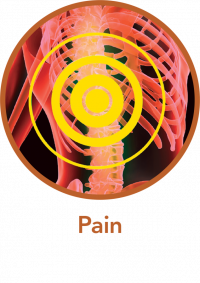Home » Education » Weitzman ECHO » Chronic Pain
Chronic Pain

Weitzman ECHO Pain is a twice monthly videoconference that connects primary care providers with a multidisciplinary team of pain specialists to improve the management of patients with chronic pain. The team includes specialists with expertise in anesthesiology, physical medicine and rehabilitation, behavioral health, and pharmacy.
Weitzman ECHO uses case-based learning to provide support and education to providers, enabling them to more effectively manage complex pain cases. During each session, the specialist team delivers a brief didactic and provides guidance in accordance with CDC guidelines for each case presented by a participating provider. Topics in the 12-month didactic curriculum include pain exams, psychological approaches to pain management, headaches, medication tapers, and a series on safe opioid prescribing.
Weitzman ECHO Pain addresses common challenges in the midst of the opioid epidemic:
- Primary care providers express low confidence in their ability to manage pain and discontent with pain resources available to them.
- Access to specialty consultation is extremely limited.
- There is a wide variation in primary care in the prescribing of opioids and adherence to guidelines for documentation.
- Patients with opioid addiction often face stigma in seeking care.
Participant Testimonials
“I believe Project ECHO has helped me to have more honest, direct conversations with patients about the impact and risks of long term narcotics. I am more confident about treatment options and nonnarcotic medications for neuropathic pain and migraine headaches. The case presentations have given me additional insight into alternative treatments for peripheral neuropathy and given my patients hope that we still have more options for treatment regiments. I have helped several patients taper off all narcotics with the realization that they really have not made them more active and only potential side-effects. “
– Julie Brady, MD; Colorado Springs Health Partners, CO
“A major benefit from participating in Project ECHO was that I gained a much better understanding of and appreciation for the holistic nature of pain. Recognition of some of the harmful psychological adaptations and learning a framework for addressing these with patients were the most valuable pieces for me.”

